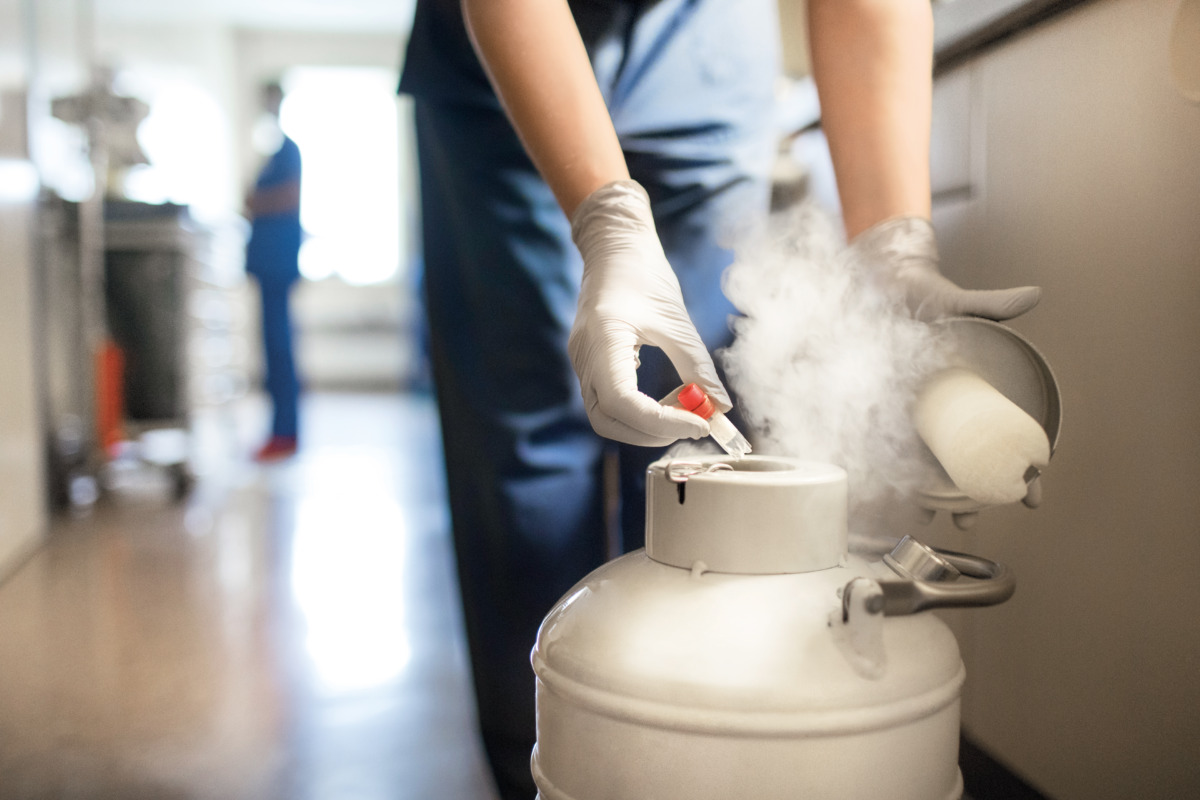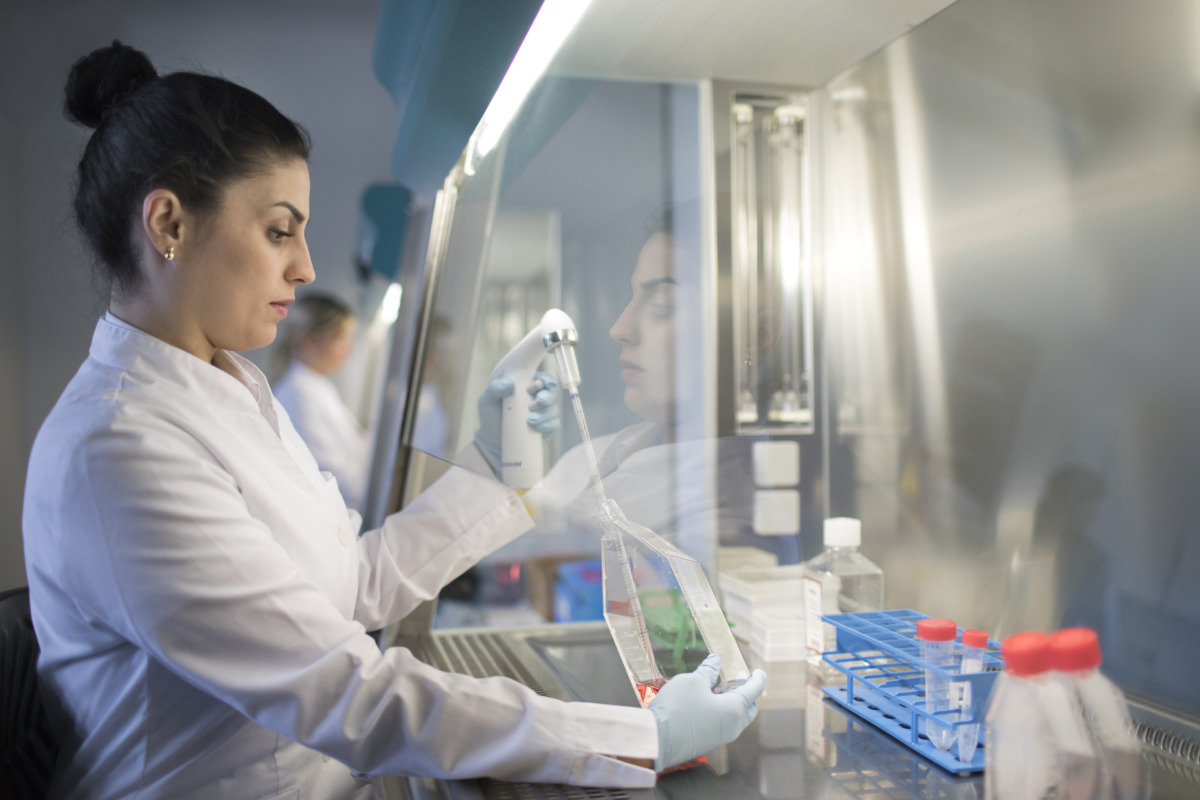Precision medicine involves tailoring a therapeutic to a patients’ disease. Here, we delve into the critical role played by the quality of the samples, the data, and the analysis in the development of these targeted therapies.
Developing precision therapies requires accurately identifying therapeutic targets from the available data. In parallel, patient subgroups that would benefit the most from the therapy also need to be defined. Because precision medicine is highly patient centric, the pre-clinical research for these therapies is extremely challenging.

“Identifying the correct target, in the correct tissue, for the correct group of patients is vital for precision therapies,” said Jonathan Woodsmith, Vice President of Advanced Analytics at the German founded global oncology company Indivumed Therapeutics.
Therapeutic target discovery programs that fail to get these elements just right have a lower chance of success, despite the investment of time and funds into them.
The lesson is clear: without optimizing a target for tissue type, and patient subgroup, it is challenging for a therapeutic to progress through preclinical research and clinical trials.
Where we are today: the technology-enabled early discovery process
Fundamental to any precision oncology discovery program is an accurate data-based depiction of the cancer. This fosters a clear understanding of the disease and ensures that the right targets are identified.
To generate clinically relevant patient data, use of high-quality biospecimens is critical, emphasized Woodsmith.
Biospecimens that have been outside of the body for too long or have been non-optimally collected, can undergo morphological or physiological changes. This invariably results in loss of vital information that can critically alter high throughput data collection and the subsequent disease description, leading to targets either being missed or incorrectly identified.
“The process to obtain freshly frozen, consistently collected and processed biospecimens with high sample integrity is not trivial,” acknowledged Woodsmith. “But, ultimately these are the samples that accurately reflect the disease process and enable high quality data production.”

Applying the right analysis on the derived data is equally as essential as high sample quality, Woodsmith stated. This is because the analysis helps to shed light on the relationship between the patient’s disease and a potential target.
This is where the emerging field of multi-omics currently offers promise, highlighted Woodsmith. Multi-omics combines a variety of datasets using different biological analyses spanning the genome, proteome, microbiome, and more, providing an integrated perspective to power discovery.
Further, datasets today are large – often spanning terabytes of data – and extremely complex. These challenges make determining the relevant analyses more complicated, and can lead to a roadblock in the early discovery program.
To help simplify and fast-forward the discovery process, the use of machine learning (ML) and cloud-based computing tools have gained popularity in recent years. Woodsmith noted that by addressing the combinatorial complexity of the disease with cost-effective data processing, ML and artificial intelligence (AI) algorithms can potentially reveal efficient ways of selecting the right targets in the right patients.
Optimizing pre-clinical validation using disease-adjacent models
Once a drug candidate is successfully identified in silico, validating findings in vitro is necessary before the therapy can be progressed to clinical trials.
This typically involves using experimental models to demonstrate that the identified target molecule inhibits the cancer. Traditionally, such validation is done using immortalized cancer cell lines derived from tumor cells that can grow and replicate in the lab.
However, as preclinical research continues to evolve, scientists have realized that the disease adjacency of a model – that is, how closely a system captures the patient’s disease – is important.

“Early work should be done on data and experimental systems that represent the disease in humans as closely as possible. This increases the likelihood that the therapy will be successful further down the pipeline,” explained Woodsmith.
As immortalized cell lines do not fully capture human physiology, they have been supplemented with the use of more disease adjacent models as technology has advanced.
Today, patient-derived cellular models, for example organoids, represent cutting-edge experimental models for pre-clinical validation. These allow one of the closest recapitulations possible of the patient’s physiological processes, while also representing the hallmarks of the disease.
Unraveling the complexity: a pre-clinical AI-based discovery and development tool
Scientists are equipped with more powerful early discovery tools and pre-clinical models today than were available a few decades ago. Despite this, being able to reliably determine a potential target’s impact on a specific patient’s cancer inhibition still remains a key pre-clinical challenge.
Recognizing this, the Indivumed Therapeutics team has channeled its efforts into harnessing state-of-the-art technology to help decrease uncertainty during drug development and overcome this challenge.
“nRavel® is our adaptive discovery and development platform designed to sift through patterns to identify, characterize and validate druggable targets,” elaborated Woodsmith. “It does this by combining and analyzing in silico insights, multi-omics data and corresponding patient information from our proprietary database, alongside results from in vitro tests.”
The biospecimen and the clinical data that form the inputs for nRavel® are collected in an internationally standardized manner. This is achieved with the help of Indivumed’s global network of partner clinics, following which the biospecimen and data are curated by trained Indivumed staff.
“The sample processing, clinical data curation, multi-omics as well as AI-powered analysis, are all done in-house by our team,” Woodsmith said. “Additionally, we ensure that the multi-omics and clinical data derived from our clinical collection match with the cellular models, enabling data consistency from start to end. This allows us to provide verifiable target identification and validation.”

“Because nRavel® houses in-depth molecular profiles extracted from the analysis, it can also be applied to help optimize clinical study design in downstream development. This further helps in defining the patient selection criteria to identify the best suited cohort for the therapy.”
Since 2022, Indivumed has been supported by the European Regional Development Fund (ERDF) in developing an early discovery oncology pipeline using nRavel®.
As part of the project, samples have been collected across 10 cancer types so far. And efforts are ongoing to identify the most promising actionable targets across multiple clinically relevant disease cohorts.
With a wealth of promising in-silico-identified targets, the Indivumed team has commenced the first of the validation pilots as part of the ERDF project, shared Woodsmith. The pilots will involve in-vitro-validation using patient-derived organoids developed by Indivumed’s partner CellPhenomics, a company specializing in organoid design.
Looking forward to the future of precision medicine
Ultimately, the quality of the biospecimen, and the resulting data, can make or break the therapeutic potential a medicine has to offer, contemplated Woodsmith.
“The sample lays the foundation by reflecting the disease. Its quality is key in determining the success of the precision therapy approach,” he continued. “All subsequent steps build on it, to help address the unmet medical need as swiftly as possible.”
“Techniques for sample and data collection, as well as advanced analytics, have developed rapidly over the last decade,” remarked Woodsmith. “As a company, we will stay at the forefront of this space to ensure that the most effective precision therapies get to the relevant patient subgroups when they need them.”
Here’s how you can partner with Indivumed Therapeutics to optimize your early discovery pipeline. To hear more from Jonathan Woodsmith on the power of combining multi-omics, clinical data, and advanced analytics check out this recent film.
Images courtesy: Indivumed Therapeutics





